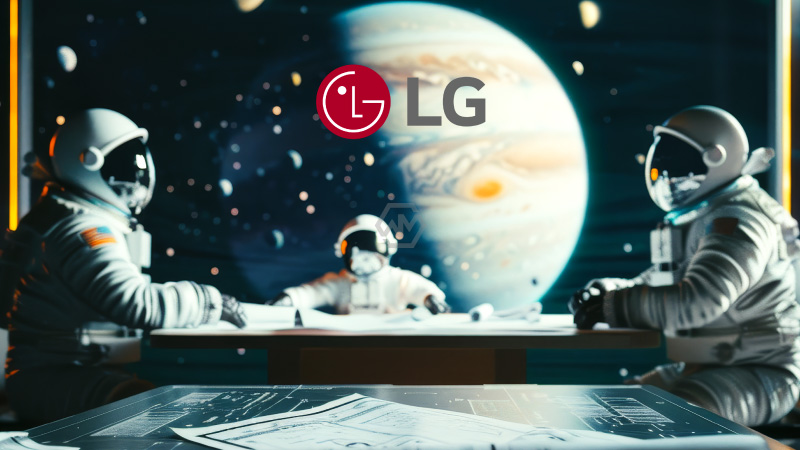- LG Group is exploring entry into South Korea’s growing private space sector.
- The conglomerate aims for a lunar landing by 2032 in collaboration with local startups.
- Support from Korea Aerospace Administration (KASA) signals a shift toward private-sector space innovation.
South Korea’s LG Group is venturing beyond Earth, evaluating opportunities in the space economy as it looks to diversify beyond electronics and energy.
LG’s engagement also marks a strategic response to global trends. The group has already proven its capability in the aerospace domain—LG Energy Solution supplied lithium-ion batteries for NASA spacesuits in 2016.
LG Group Targets Moon Mission by 2032, Joins South Korea’s ‘New Space’ Movement
LG’s recent collaboration with Unmanned Exploration Laboratory (UEL) has resulted in a successful mobility test of a lunar rover. Tested in a simulated lunar environment, the rover features radiation-resistant materials, advanced wheels, and camera modules from LG Innotek, showcasing the group’s interdisciplinary integration of technology. The initiative illustrates LG’s intention to not only support but also co-develop future space assets.
During the roundtable at LG Science Park, top executives from LG Electronics, LG Innotek, and LG Energy Solution discussed industry alignment with KASA’s vision for reusable launch vehicles by 2035. These discussions reflect a broader national commitment to shifting space exploration from government-driven missions to private-led innovation. KASA has allocated $1.53 billion to the development of next-generation reusable rockets.
LG’s interest is not confined to hardware. The company is also nurturing space startups, helping cultivate a sustainable ecosystem. This dual approach—developing in-house capabilities while investing externally—places LG in a unique position to shape South Korea’s commercial space narrative over the next decade. Industry experts predict the global space economy could exceed $1.1 trillion by 2040, presenting immense opportunities for early movers.
Leadership across LG affiliates emphasized the importance of forward-thinking innovation. Chairman Koo Kwang-mo recently stressed long-term strategic alignment during a visit to LG’s Jakarta office, underscoring that competitive survival hinges not just on current performance but on anticipating future markets like space. This perspective echoes the conglomerate’s broader push into frontier technologies.
LG’s entry into the space industry could redefine its legacy—from household electronics to a household name in space. Its alignment with KASA and technological preparedness place it on a promising trajectory toward its 2032 lunar goal.
“The Earth is the cradle of humanity, but one cannot live in the cradle forever.” – Konstantin Tsiolkovsky



